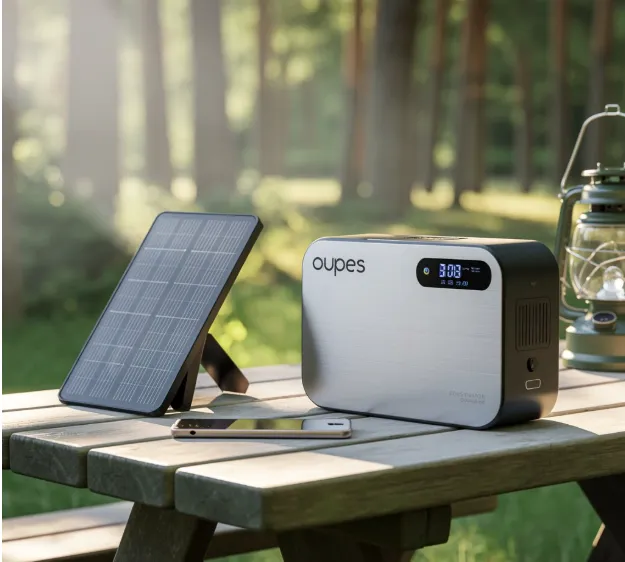When it comes to backup electricity or off-grid living, most people face the same question: Should I buy a solar generator or a gas generator? Both provide power when you’re away from the grid, but their costs and long-term value are very different. If you want to save money while also making a smart investment for the future, it’s worth looking deeper into how each option works.
Also Read: Everything Soutaipasu Fascinating Concept
What Is a Gas Generator?
A gas generator runs on gasoline or diesel. You fill the tank, start the engine, and it produces electricity. They’ve been used for decades because they’re easy to find and can run large appliances.
But there are clear downsides:
- Constant need for fuel, which can get expensive.
- Loud noise that makes them unpleasant for home or camping.
- Harmful emissions that aren’t safe indoors.
- Regular maintenance like oil changes, spark plugs, and filters.
At first, they seem affordable because of the lower purchase price, but the ongoing costs add up quickly.
What Is a Solar Generator?
A solar power generator is powered by renewable sunlight. It uses panels to capture energy and stores it in a built-in battery. From there, you can plug in your devices or appliances just like a normal outlet.
Unlike gas machines, solar options:
- Don’t require fuel purchases.
- Run quietly without disturbing your surroundings.
- Are safe to use indoors since they produce no smoke.
- Have little to no ongoing maintenance costs.
For people looking for an eco-friendly, low-cost, and long-term energy solution, solar is quickly becoming the smarter choice.
Comparing Costs: Solar Generator vs Gas Generator
Let’s break down the financial side.
Initial Purchase:
- Gas Generator – Usually cheaper at the start, around a few hundred dollars.
- Solar Generator – Higher upfront price, but technology has become more affordable in recent years.
Fuel and Operation:
- Gas Generator – Needs gasoline or diesel every time you run it. Costs rise even more during fuel shortages or price spikes.
- Solar Generator – Runs on sunlight, which is free. Once you own panels, the cost of operation is nearly zero.
Maintenance:
- Gas Generator – Oil changes, parts replacement, and repairs can quickly raise the yearly expense.
- Solar Generator – Minimal upkeep since it has no moving engine parts.
Long-Term Savings:
Over a few years, the portable power station option saves far more money. While you spend more upfront, you avoid fuel bills and costly repairs, making it the budget-friendly choice in the long run.
Everyday Convenience:
Aside from cost, you’ll also want to think about convenience.
- Gas Generators can power heavy-duty appliances but can’t be used indoors due to dangerous fumes.
- Solar Generators can safely run inside your home, RV, or cabin without noise or pollution.
If you’re living off-grid, camping, or preparing for emergencies, convenience matters as much as price and solar clearly wins here.
Pros and Cons:
Solar Generator
Pros:
- Free energy source (sunlight)
- Quiet and emission-free
- Safe indoors and outdoors
- Low maintenance
Cons:
- Higher initial cost
- Dependent on sunlight for fastest charging
Gas Generator
Pros:
- Lower starting price
- Handles large, power-hungry appliances
Cons:
- Ongoing fuel expense
- Pollutes environment
- Loud and disruptive
- Requires regular maintenance
Which One Truly Saves You Money?
If you’re only looking at the purchase price, a gas generator seems cheaper. But if you consider years of use, fuel, and repairs, the solar option is far more cost-effective.
Think of it this way: a solar unit pays for itself after avoiding just a couple of years’ worth of fuel and maintenance. After that, it’s basically free power every time the sun shines.
FAQs
1. Are solar generators powerful enough to run big appliances?
Yes, larger models can run fridges, TVs, and even medical equipment, though it depends on the battery size.
2. How long does a solar generator last?
With proper care, most models last several years and provide thousands of charge cycles.
3. Can I charge a solar generator without the sun?
Yes, many also allow wall or car charging as backup.
4. Is a gas generator better for emergencies?
Gas generators can provide fast power, but if you run out of fuel, you’re stuck. Solar provides ongoing free energy.
5. Do solar generators work at night?
They store energy in batteries, so you can use them anytime.
6. Are portable solar generators easy to move?
Yes, they’re lightweight compared to heavy gas models, making them ideal for camping or RV trips.
7. Which is safer to use indoors?
Only solar generators. Gas units release harmful fumes.
8. What’s the best use for a portable power station?
Charging small to medium devices daily, backing up home power, or keeping your RV/cabin powered sustainably.
Final Thoughts
When comparing solar generators vs gas generators, it’s clear that solar offers greater long-term savings, less hassle, and better safety. While gas machines may win in short-term price, they lose in the bigger picture.
If you want reliable, eco-friendly, and cost-effective power, choosing an OUPES portable power station or solar power generator is the smarter path forward.



